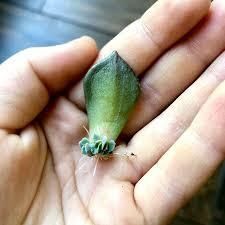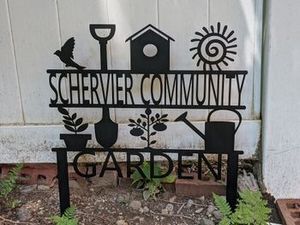
What is Horticultural Therapy?
Horticultural Therapy (HT) is an ancient practice, but a new profession. HT is about plants and nature and the connection to people that is healing. Studies have shown that nurturing plants helps people to feel calmer, less pain, and happier.
The “roots” of horticultural therapy were established in the early 19th century by Dr. Benjamin Rush, a physician considered to be the first psychiatrist and signer of the Declaration of Independence. Dr. Rush observed and documented the benefits of working with plants for his patients at his Philadelphia clinic. His efforts led to the use of Horticultural Therapy as a treatment option for individuals with mental illness. Today, HT programs are commonplace at many different facilities around the world, used for various reasons beyond mental illness.
For questions, ideas about classes, interest in gardening, or you, or someone you know would like to teach a gardening class, contact
Barbara Denson: bdenson@rssny.org
What are the benefits of Horticultural Therapy?
Being in nature is therapeutic in and of itself. Being around plants can help with depression, recovery from illness, and productivity. There are studies that have shown that just touching soil is helpful in creating a feeling of well-being and euphoria. According to studies, getting your hands dirty in the garden can increase your serotonin levels – contact with soil and a specific soil bacteria, Mycobacterium vaccae, triggers the release of serotonin in our brain. Serotonin is a happy chemical, a natural anti-depressant, and strengthens the immune system. (for more information read this article from the Permaculture College Australia: https://bit.ly/whygardeningmakesyouhappy.)
So, what are the benefits of horticultural therapy specific to older adults? The use of horticulture therapy programs can help older adults with:
- Stress reduction
- Stabilizing mood
- Improving memory and cognition
- Physical health through exercise
- Social interaction
- Creativity
- Improving memory loss
Horticultural Therapy at RSS
What are the different ways Horticultural Therapy shows up at RSS?
- The RSS Terrace: the terrace garden is made up of wheelchair-accessible raised beds and planters filled with herbs, vegetables, and native perennial plants. It is a place where members can come to do gardening, sit outside in the quiet to read, eat lunch, get fresh air, and enjoy the amazing view.
- Plant workshops: RSS resident horticultural therapist, Barbara Denson, offers a variety of workshops that are plant-related. Programs include plant propagation, plant-based craft projects, homemade face and body scrubs using natural materials, and aromatherapy using essential oils.
- Plant maintenance: volunteers at RSS help to maintain the plants in the center. For many of the volunteers, the act of nurturing plants is helpful as physical therapy (carrying and pouring cans of water), easing depression, and offers a way to help others.
- The Plant Dr. Is In: during and right after COVID RSS offered a monthly online workshop to talk about plants and discuss plant issues and how to address them.
- Intergenerational: Horace Mann School students interact with the RSS members and help to build and maintain the garden after school and for Service Learning Days.

Schervier Community Garden
The Schervier Community Garden, located behind the Schervier Nursing Care and Rehabilitation Center, is supported and funded in part by RSS. It is an organic garden that is for older adults ages 55 and up. Each season 32 gardeners from the surrounding community raise their own vegetables, herbs, and flowers. They use organic gardening methods and are able to harvest fresh produce. There is a community herb garden that is shared by everyone and 10 other community spaces for hundreds of native plants to attract, feed, and house pollinators, birds, and other wildlife.
Benefits that the community garden has provided to the garden members as well as residents and staff from the nursing home:
- A sanctuary during difficult times: the garden members have found that coming to the garden has helped after the loss of a loved one, or divorce.
- Socialization: each week the members garden as a community for gardening or a social event. Members have said that the garden gives them a reason to go outside and helps with loneliness and isolation.
- Physical exercise: movement for the people gardening, and a destination for people in the nursing home during a physical therapy session instead of walking the treadmill.
- A respite from the nursing home: family members visiting residents will sit in the garden on the weekends. Staff eat lunch outside.
- Intergenerational: There are opportunities for high school students to visit and help in the garden. The nursing home has a program for students with disabilities to learn vocational skills. Several of the students have been coming to help maintain spots for several of the members who need assistance.
Find the Schervier Community Garden on Facebook: https://www.facebook.com/groups/865431967979082/
